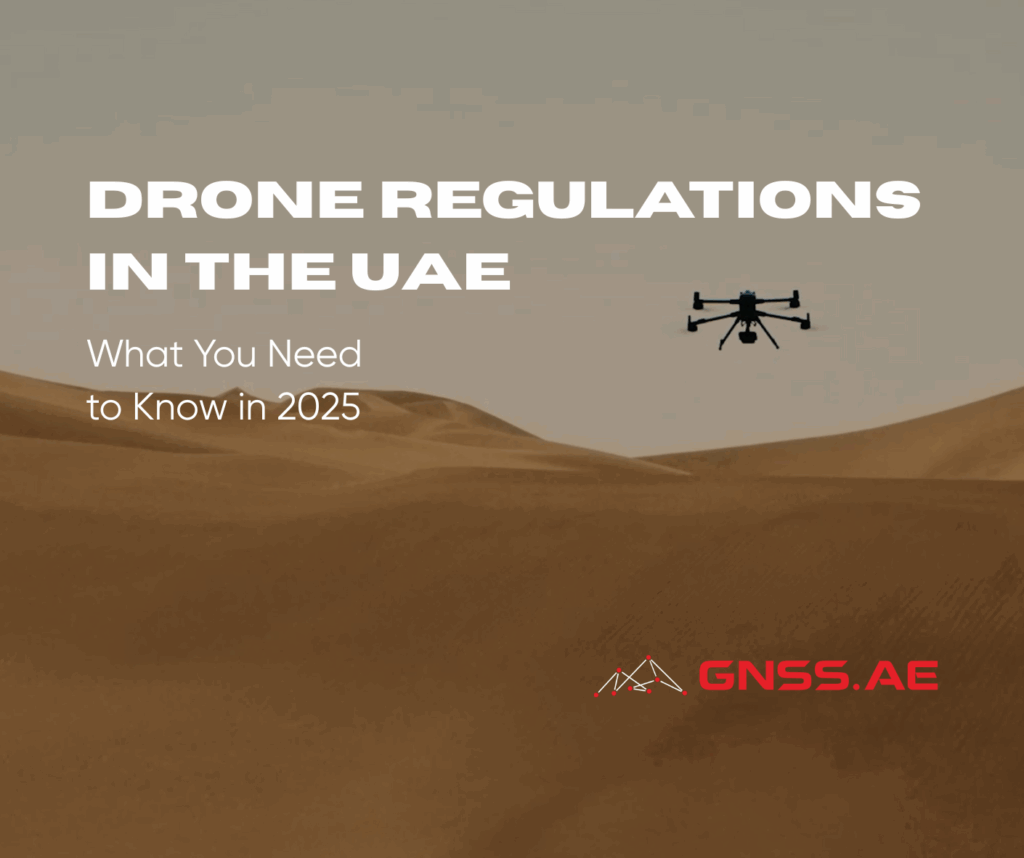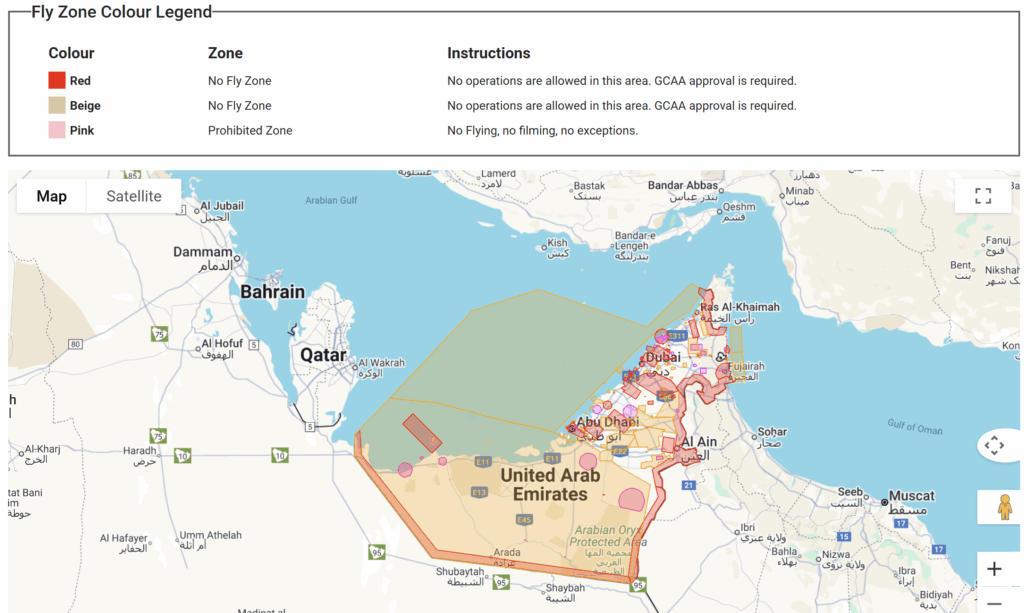
As drone adoption accelerates across various sectors, the United Arab Emirates remains at the forefront of enforcing comprehensive drone regulations to ensure public safety, aviation security and responsible drone use. Whether you’re a hobbyist pilot or a commercial UAV operator, understanding the local regulatory landscape is not optional – it’s a legal requirement.
In this article, GNSS.AE offers an up-to-date overview of the latest drone laws in the UAE and guidance for both recreational and professional operators.
Drone activity in the UAE is governed by a system of regulations primarily enforced by the General Civil Aviation Authority (GCAA) and local civil aviation bodies, such as:
These authorities oversee everything from drone registration and flight permits to flight safety and restricted zones.
According to the GCAA’s CAR-UAS (Unmanned Aircraft Systems and Operations) regulations, drone operations fall under four categories:
While we strive to provide accurate and up-to-date guidance, Gnss.ae cannot be held responsible for any outdated or incorrect information. Always check the official GCAA website or relevant regulatory authority before operating your drone.
As of 2025, several key changes have been introduced:

All drone users must register their drones with the GCAA for all Emirates (except Dubai) and with DCAA (for Dubai Emirate).
Registration Portal: drones.gov.ae
Cost: AED 200 (initial registration certificate and renewal every two years)
The permit approval process typically takes up to 14 working days.

UAE implements specific flight restrictions for aerial safety. Always check GCAA official website for regular updates on No-Fly Zones. Key prohibitions include:
Violating these rules can result in fines and criminal charges, including jail time.
| Do | Do Not |
|---|---|
| Register your drone with the GCAA /DCAA and other relevant bodies as applicable. | Do not modify your drone without manufacturer or GCAA approval |
| Conduct pre-flight safety checks (drone and weather) | Do not fly in restricted zones or above 400 ft |
| Maintain visual line of sight at all times | Do not capture images, audio or video without proper permissions |
| Keep at least 50 meters away from people, buildings, and vehicles | Do not transport hazardous materials unless approved |
| Report incidents immediately to authorities | Do not endanger public safety or property |
Commercial drone operators are legally required to carry third party aviation grade liability insurance. This protects operators from costs related to property damage or injury caused during drone flights—a vital consideration for industries like construction, surveying and logistics.
The GCAA and DCAA encourages ongoing training through certified programs and workshops. Staying current with regulatory updates is essential, especially as drone usage continues to grow in complexity and application.
At GNSS.AE, we support UAV operators by facilitating access to DCAA / GCAA-approved training courses, offering compliance support and assisting with all stages of the permit and registration process.
The UAE is fostering a forward-thinking drone ecosystem that balances innovation with safety. By complying with the latest GCAA and local aviation authority rules, drone pilots can take full advantage of the country’s dynamic airspace while avoiding legal pitfalls.
At GNSS.AE, we are here to help you navigate the complexities of drone regulation, from licensing and registration to training and airspace authorization. Contact our team of experts today and ensure your drone operations in the UAE are fully compliant, safe and efficient.